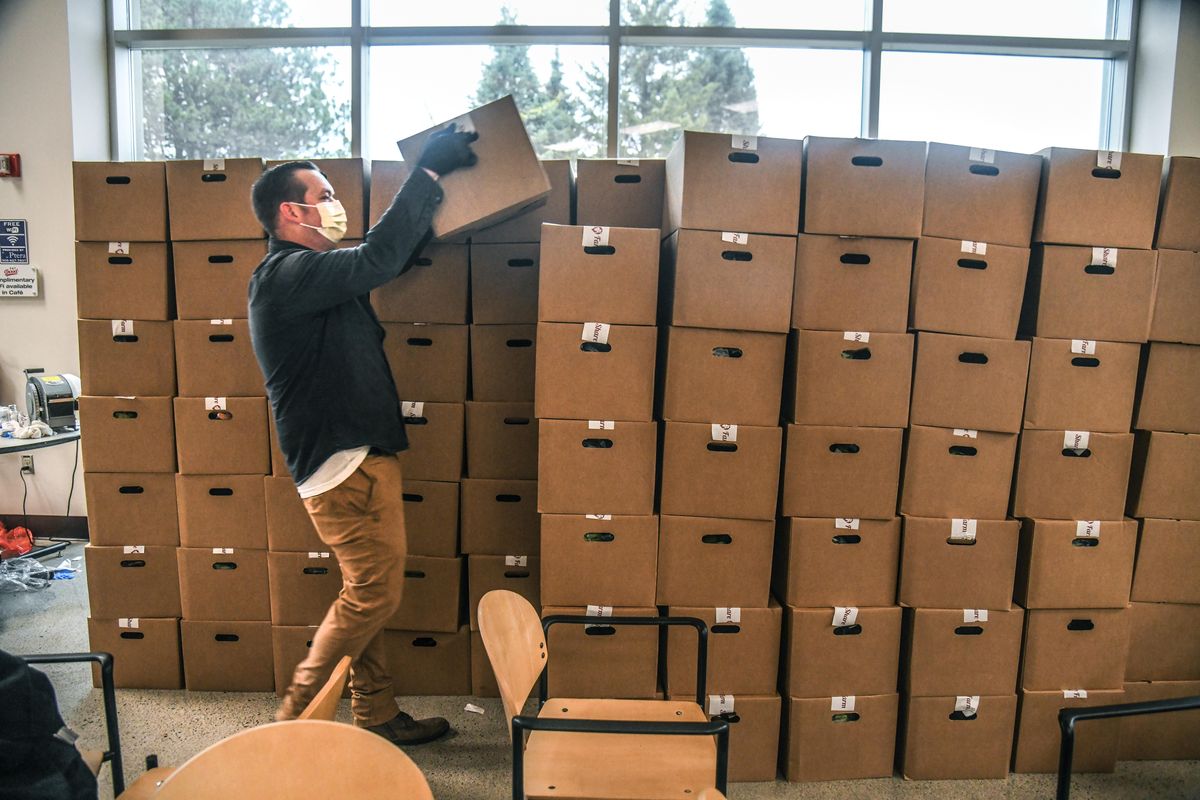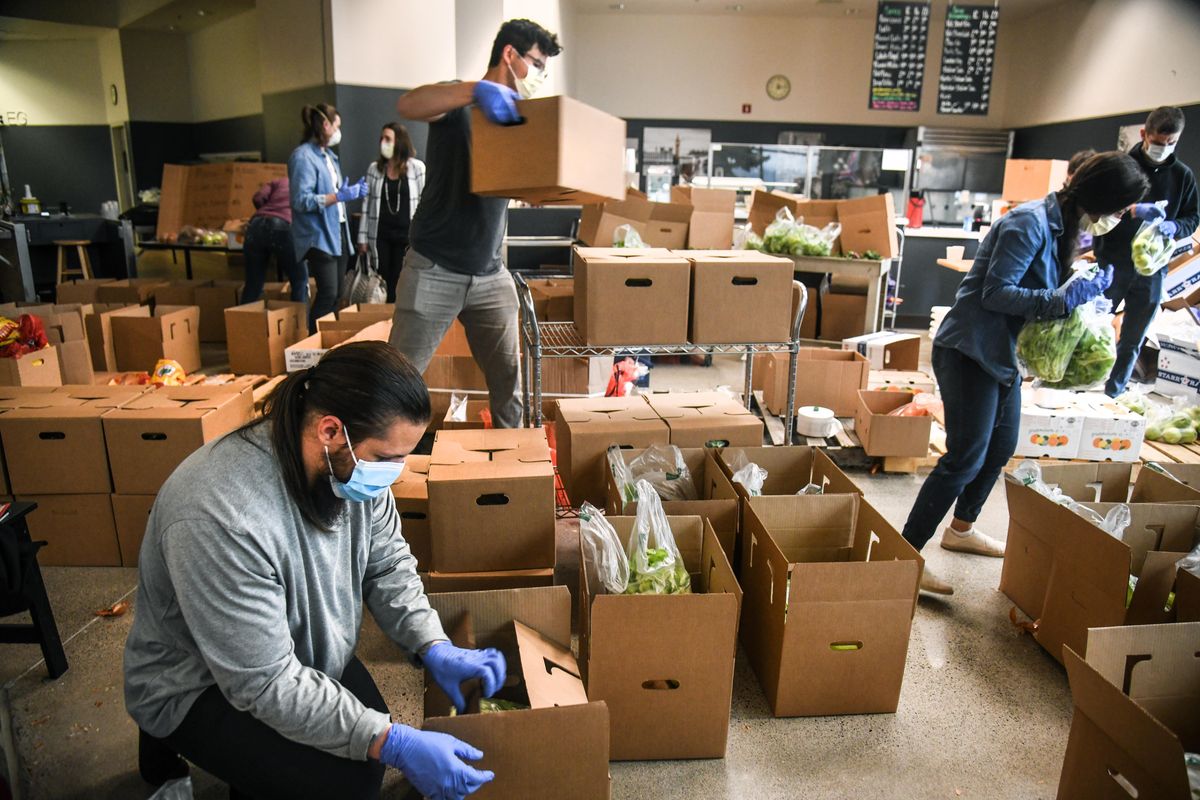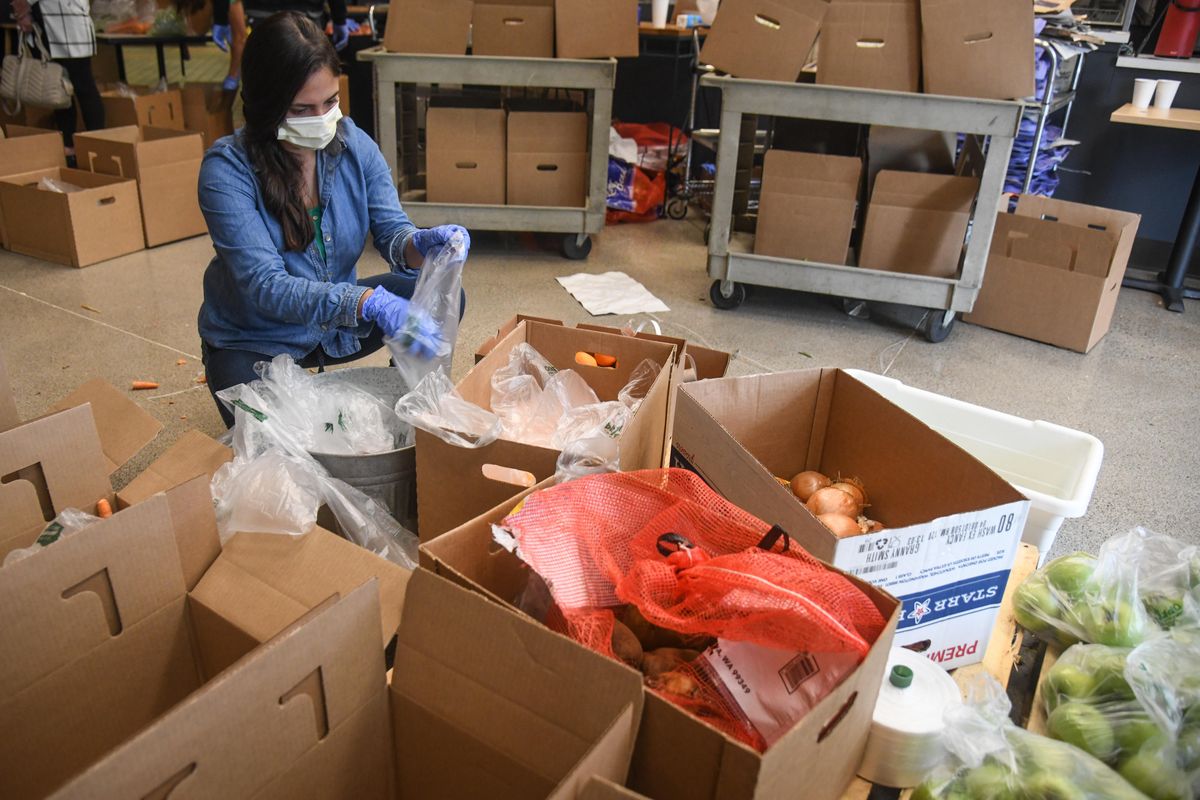USDA program turns local produce into food boxes

Local organizations have been awarded $1.4 million from the USDA to prepare boxes of fresh produce and other food to deliver as part of the national Farmers to Families Food Box program.
The Inland Northwest Farmers Market Association and Share.Farm applied for the funding. Share.Farm is a group that was formed to connect farmers and consumers through a smartphone app as a way to help farmers get their product to local residents.
With orders from restaurants, schools and other businesses down, farmers often have a surplus of items they can’t sell through their normal channels. The Farmers to Families Food Box program is designed to put that surplus food to good use so it is not wasted.
Camila Oliveira gathers radishes for some of the 350 emergency food boxes, Friday, May 15, 2020, at Eat Good Cafe in Liberty Lake, Wash. The Inland Northwest Farmers Market Association and Share.Farm have received a USDA “Farmers to Families” contract valued up $1.4 million to provide boxes of fresh produce, dairy and meat products to those in need during COVID-19 pandemic. (Dan Pelle / The Spokesman-Review)Buy a print of this photo
Stephanie Watson, director of community partnerships for Share.Farm, said the Food Box program is right in their wheelhouse.
“It’s a perfect fit for what we do,” she said.
About a dozen volunteers wearing masks and gloves gathered Friday morning at the Eat Good Café in Liberty Lake, which is currently closed. They loaded 350 boxes with onions, apples, mandarins, lettuce, radishes and potatoes to get them ready for delivery later that day. Each box weighed about 20 pounds.
Local non-profit organizations such as the North Country Food Bank and Vanessa Behan had submitted the names of families in need were to receive the boxes.
“They tell us how many boxes, how many families they need to feed,” Watson said.
The effort is being helped by the army of 400 volunteers from Spokane Food Fighters, a grassroots group founded by Washington State Rep. Marcus Riccelli that delivers hot meals from restaurants to those who need them.
“It matches and aligns with our purpose to get nutritious food to people in need,” he said. “We are basically the delivery source. We get no funding for this.”
Watson’s organization has been reaching out to farmers it already works with and is always looking for more farmers who want to sign up. They try to use local farmers when they can, and the food boxes being packed Friday included lettuce and radishes grown at the Backyard Market in Elk.
Backyard Market general manager Seth Walser said he had been working with Watson to join the Share.Farm program when he heard about the Food Box program. “We were right at the point where we needed to move a whole bunch of lettuce and radishes,” he said.
The farm is only in its second year and Walser said he’d been worried he’d have to turn some of his crop into compost or feed it to the chickens. The Food Box program will not only help those in need, it helps his farm, he said.
“This helps us make sure it’s going to as many families as possible and not the chickens,” he said. “It feels like our efforts weren’t wasted. It all worked out.”
Walser said there needs to be more of an effort to get available food to those who need it. “We’re sharing the abundance,” he said. “This isn’t a world of lack. This is a world of wasted resources.”
The USDA funding will allow the Food Box program to continue weekly for the rest of the year, Watson said. “We’re doing this every week from now to December,” she said.
The funding is broken into eight-week phases. The program will be evaluated after each phase to determine whether the funding will continue.
Watson said her group has committed to providing 350 boxes a week, but what is in them will vary depending on what is available on local farms. Some boxes could include meat and dairy items.
The distribution process is still being fine-tuned. Families not in contact with a local non-profit can request a box at www.spokanefoodfighters.org
The program is on a first-come, first-served basis. It’s possible that there won’t be enough to fill all the requests, and Riccelli said if demand is high they might have to limit repeat customers.
“If we hit the cap, we might want to get the food box to someone who hasn’t gotten one,” he said.
Watson said everyone is looking forward to bringing food to those who need it, and she’s happy Share.Farm gets to be involved.
“This is exactly what we’ve been waiting for,” she said.


